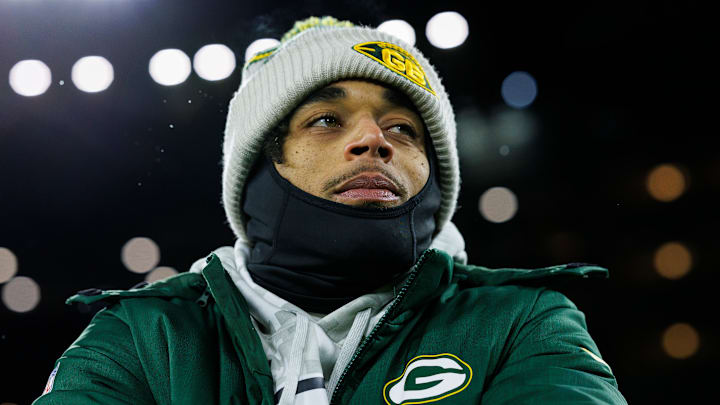Parting ways with Jaire Alexander this week did not only cost the Green Bay Packers a potential starting cornerback on their depth chart. It also forced the franchise to consume a $17 million cap hit. Most people around the NFL expected the team to split that figure up between two cap years.
Instead, the Packers are taking the unconventional route of absorbing the entire sum during the 2025 league year. Before parting ways with the former Pro Bowl defensive back, Green Bay had about $29 million in available cap space. That figure suddenly falls to $12 million by going all in on Alexander's cap hit this year.
It's easy for Packers fans to question why they did not just persevere with Alexander on the active roster rather than spend $17 million in cap space simply not to have him in the building. GM Brian Gutekunst was pretty open with his methodology behind the decision with reporters this week. He quickly pointed out that keeping Alexander around and hoping for him to get healthy hadn't worked out for the Packers over the last two seasons.
Why didn’t the Packers take a gamble on Jaire Alexander staying healthy and keep him?
— Matt Schneidman (@mattschneidman) June 10, 2025
Brian Gutekunst: “Obviously we’ve done that the past few years and it hasn’t really worked out for us.” pic.twitter.com/r89Yq7w6Bd
Smoothing his cap hit over two seasons would still have been the more orthodox decision in NFL circles. It's always possible the Packers could need that extra cap space ahead of Week 1 if they're hit with an unfortunate injury. Closer examination shows that it's a wise, calculated gamble by Gutekunst and his staff.
Why are the Packers absorbing the entire cap hit immediately?
$29 million in cap space might have really helped the Packers early in the free agent window. That kind of money could have landed at least another high-quality starter at a position of need. Ironically, it could been used to secure a new starting outside cornerback to replace Alexander if they were sure he couldn't be brought back into the fold via a restructured contract.
That same amount of money is far less useful in the middle of June. There simply aren't that many high quality free agents left on the open market. Players that still haven't found homes at this point in the offseason come with significant flaws. At best, they are gambles that have serious question marks. More normally, they are veterans who teams believe might be approaching the end of their professional careers.
The Packers might well choose to dip into free agency to fill a need on the roster, but they aren't going to need $29 million to get any of their holes filled. Any free agent that's still shopping for a team should be happy with any measure of guaranteed money as OTAs approach. It would be nearly impossible for Green Bay to soundly invest $29 million at this stage of the offseason.
Subtracting the $17 million from Alexander's deal from that figure leaves the Packers' front office with approximately $12 to spend if they want to add to their roster. That's more than enough to find another outside cornerback capable of competing for Alexander's vacated starting spot. Someone like Asante Samuel or Rasul Douglas would be wise to accept a one-year deal at less than that figure in an attempt to reestablish their value before hitting free agency again next year.
Splitting the cap hit in half would serve to hinder the Packers' efforts to be active in free agency leading up to the 2026 campaign. That could be the offseason where Green Bay feels they should go all in to finally give quarterback Jordan Love the help he needs to end the franchise's Super Bowl drought. Lowering their buying power by $8.5 million could be the difference between a star and a mediocre starter next year.
Packers fans who want to criticize the team for giving up on Alexander's talent should have their say. That's a reasonable argument to make for a team that heads into 2025 with legitimate Super Bowl aspirations. The franchise should not be criticized for taking his full cap hit in this league year. It's a solid decision that might cause the team a little short-term pain but could pay off handsomely down the line. Credit Gutekunst for taking his medicine now to make sure he maximizes his potential free agent spending 12 months down the line.
